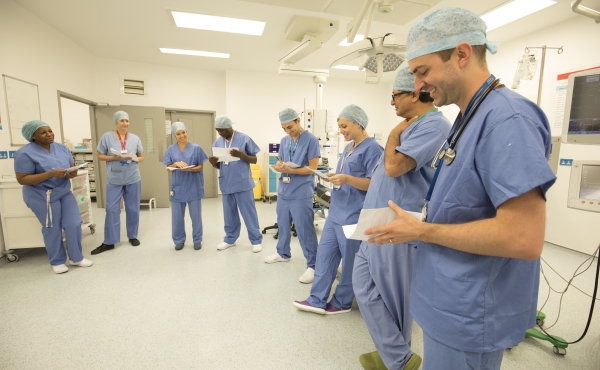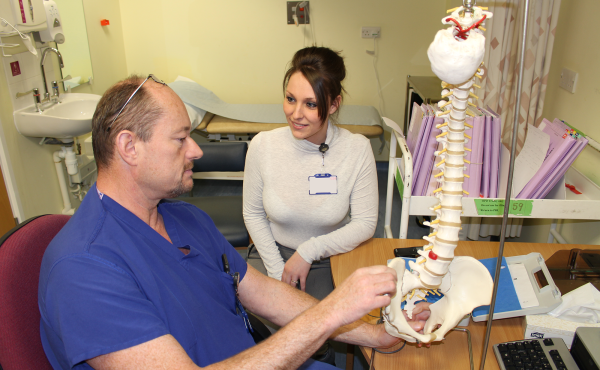Preparing for a consultant post
You are eligible to apply for a consultant post any time after the six months leading up to your CCT date
Some people don’t feel ready at this point to apply for a consultant post and will either spend a further six months post-CCT in their deanery as a trainee or will apply for a post-CCT fellowship (either within the UK or abroad).
Non-clincal skills
There are many skills that will be required of you as a consultant that are non-clinical. Some of these can be learnt using the many resources you have around you when you have started your new job (using the experience of the multi-disciplinary team around you) and some can be ‘learnt’ on various courses.
Useful courses
- The RCoA have courses on ‘Leadership and Management’
- The Association of Anaesthetists of Great Britain and Ireland have courses on ‘Becoming a Consultant’ and ‘The Consultant Interview’, often joint-badged with the RCoA.
- NHS Leadership Scheme at the NHS Leadership Academy
- 'Preparing for a Consultant Post' and Leadership Programmes with The King's Fund
- The Faculty of Medical Leadership and Management run an extensive range of courses on Leadership and becoming a Consultant.
Applying for a consultant post can seem like the last treacherous passage of a long and arduous road. The NHS mandate, health economics, specialised versus specialist services, the quality agenda and best practice tariffs are all topics of minor interest as a trainee, which now simmer to the top of a new and baffling agenda. So what are the pitfalls; where should one start and is this the end or merely a staging post in the pursuit of excellence?
Guidance on applications
In this web resource we will focus on eligibility for applications, which areas of the health literature must be at your fingertips, the process of consultancy application, how to understand yourself and the job role, complexities specific to pain medicine, key resources and what to do if all else fails. Finally, we will look at what happens when you finally 'cross the Rubicon' and the very different landscape you face as a consultant in Pain Medicine and anaesthesia.
Click the sections below to find out about each stage of the application process
The first barrier to becoming appointed is internal. Ask yourself do I feel ready to step up to the challenge of being a consultant and do I know where I wish to work? You may decide you are better suited to applying for a Fellowship or acting as a locum until you are sure you have explored and maximised all your training opportunities and have identified the regional and hospital in which you want to work. Secondly, you are only eligible to apply for a job if the interview date is six months prior to your predicted certificate of completion of training date.
Two to three months of steady work may well be required prior to the interview date, to adequately prepare, especially if one is applying for a job involving Anaesthesia with a sub specialist interest such as Pain Medicine. In this respect, preparing for the interview is not dissimilar to preparation for a viva.
Get a good understanding of a broad range of topics, such as the NHS structure, seven day working, integrated care, the consultant contract, major white papers, recent national audits, medical school curricula, speciality guidelines, accreditation and commissioning of services, is fundamental. One must also be aware of the climate in which Pain Medicine and Anaesthesia are progressing locally and nationally. The Faculty of Pain Medicine website and newsletter (Transmitter), the Royal College of Anaesthetists website and journal(Bulletin), the Kings Fund and the internet are excellent resources.
Vital too is knowledge of the Trust / Health Board to which you are applying. Whether you are an internal candidate or not, knowledge of the hospital management structure, finances and areas of concern to your department and the board, are key. This can be achieved by time spent exploring the hospital intranet, reading the annual reports, strategic development plans and board minutes. If you have any unique selling points, for instance around education, then the ability to talk around the undergraduate and postgraduate curricula, the medical school as well as the structure and financing of medical education and the shape of training review is paramount. The local medical school website hospital education department and NHS medical education are also valuable resources.
Where to look for adverts? Keep a careful eye out for jobs on the NHS Careers website and BMJ Careers. NHS Careers enables you to log on and will create alerts for potential jobs of interest. The NHS jobs website itself has a generic application form for jobs. It is easy to use but completing the required questions will take time and preparation. Ensure you allow a week or so to complete the online application and have an idea of referees prior to commencing the process.
When completing the online application pay careful attention to the person specification. There may be areas of weakness which you will be able to address prior to any potential interview. As with the interview this is the time to sell yourself and not to hide your light under a bushel!
Shortly after the submission of the online form you should receive a notification as to whether or not you've been shortlisted. This is the point at which to make formal visits. By taking the time to make formal visits you will demonstrate that you are a committed team player who understands the potential strategic direction of the Trust and the challenges faced by the department. It is also the time to ask questions and learn more about the department. If the panel members are made known to you, attempt to contact them via their secretaries. If they are not able to see you that is fine, but you must make the effort. With each visit, you will gain confidence and knowledge and thus be able to align yourself to the goals of the institution and identify potential interview questions.
Prior to the interview you may be asked to complete a psychometric profile. Be honest about your answers and personality. Psychometric tools are not the be all and end all, but one of the many tools used for selection. Understanding of your personality, will enable you to demonstrate how understanding your strengths and weaknesses can benefit the trust. This is more important than your personality profile per say.
Prior to the interview you may be asked to prepare a presentation. This assesses your ability to complete a task, presentation skills, and ability to use your skills to benefit the Trust. Preparation and planning is key. Simple slides which you can talk around, a clear structure to your presentation and meticulous timekeeping are vital. If possible, bring your unique selling points to the presentation and highlight the Trust’s values.
Aside from assimilating the knowledge required for interview, interview practice with colleagues is key. Your ability to form cogent arguments, sell yourself and exhibit your personality are vital to your success. This comes with practice. Let your local department know of your interview and ask them for interview practice. When formulating answers try to have a beginning, middle and end to each answer, with the use of unique selling points. If possible, frame your answers with personal patient-centred anecdotes. Signposting your answer will help get your message across and focus your response. For instance, in a question about an ethical issue concerning a colleague in difficulty, signposting key areas such as patient safety, seeking further information, informing appropriate staff and supporting your colleague, will structure your answer and ensure you do not veer off track.
Some of the complexities of applying to a combined post in Anaesthesia and Pain Medicine will involve understanding how you will be able to maintain competencies in both fields and an appreciation of how pain services are funded in your local region. It will be necessary to demonstrate that you have considered how best to use your time to benefit the Trust and ensure that you keep up-to-date with your clinical skills. One of the ways of doing this is to participate in a flexible rota, with a clear CPD timetable and a commitment to continue doing anaesthetic on calls.
Understanding yourself and the qualities you bring is essential to help you stand out from the crowd. Management courses and interview courses will help with understanding the background to the NHS and how to build upon your unique selling points. Knowledge of your CV is vital. Personality indicators such as the Myers Briggs indicator can help identify how to mesh your personality with others in the selection process and beyond.
If you are successful the feeling of achievement is soon met with the question of what next? Rather than the shorter perspective of speciality training, consultancy involves playing the long game. Developing a five year plan help clarify your vision for the future and which makes the most of your development combined with the trust requirements. Attempt to identify areas of weakness within your anaesthetic and pain practice and target them. In doing so you will ensure that you are best prepared to develop as a consultant and meet the standards for revalidation. Identification of a mentor can help with what is a challenging transition.
Prior to starting, it may be possible to take some time away from work - if finances allow it! If this is possible, it is a valuable opportunity, which may be fleeting in future. Discussing a job plan on how to reconcile your commitments with those of the department, will then be the next step. The standard consultant contracts consists of 10 programmed activities. In most cases, two of these are for supporting professional activity (one in Scotland) and are used for such things such as CPD, teaching and research. The other eight programmed activities are described in terms of direct clinical care, involving anaesthetics, pain clinics, injection lists and on-call activities.
The new post will bring a lifetime of challenge, learning clinical and managerial change. Beginning as a new consultant is the start of long path to wider excellence and a golden opportunity to shape the NHS both locally and beyond, in revolutionary times.
- Take time to prepare,
- Understand and develop your unique selling points,
- Invest in management and interview courses,
- Engage in purposeful interview practice, and
- Understand the core values that the Trust/Health Board wish to bring to the new post.
Want to know more?
Visit our workforce pages for more information on
a career in Pain Medicine.



